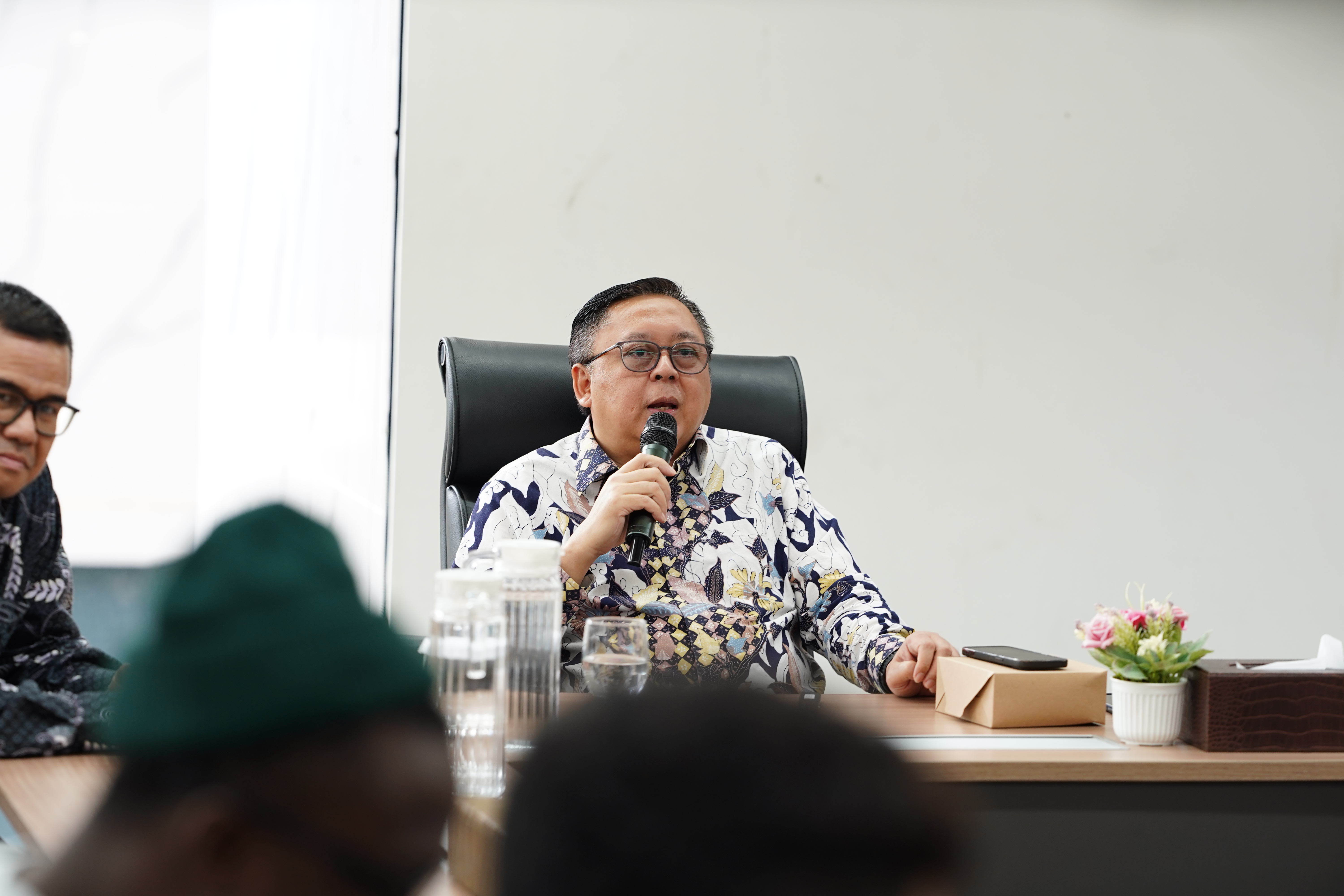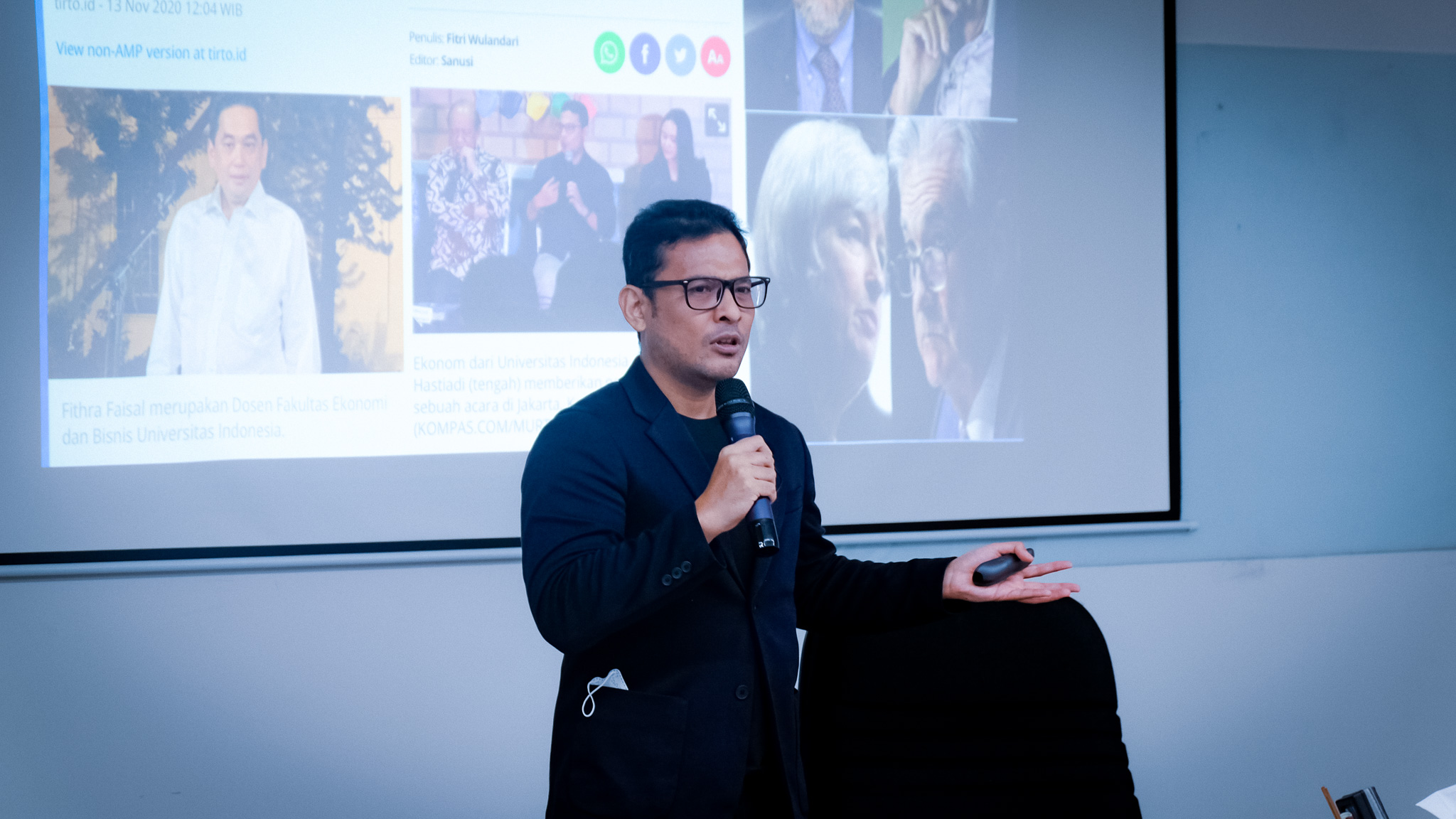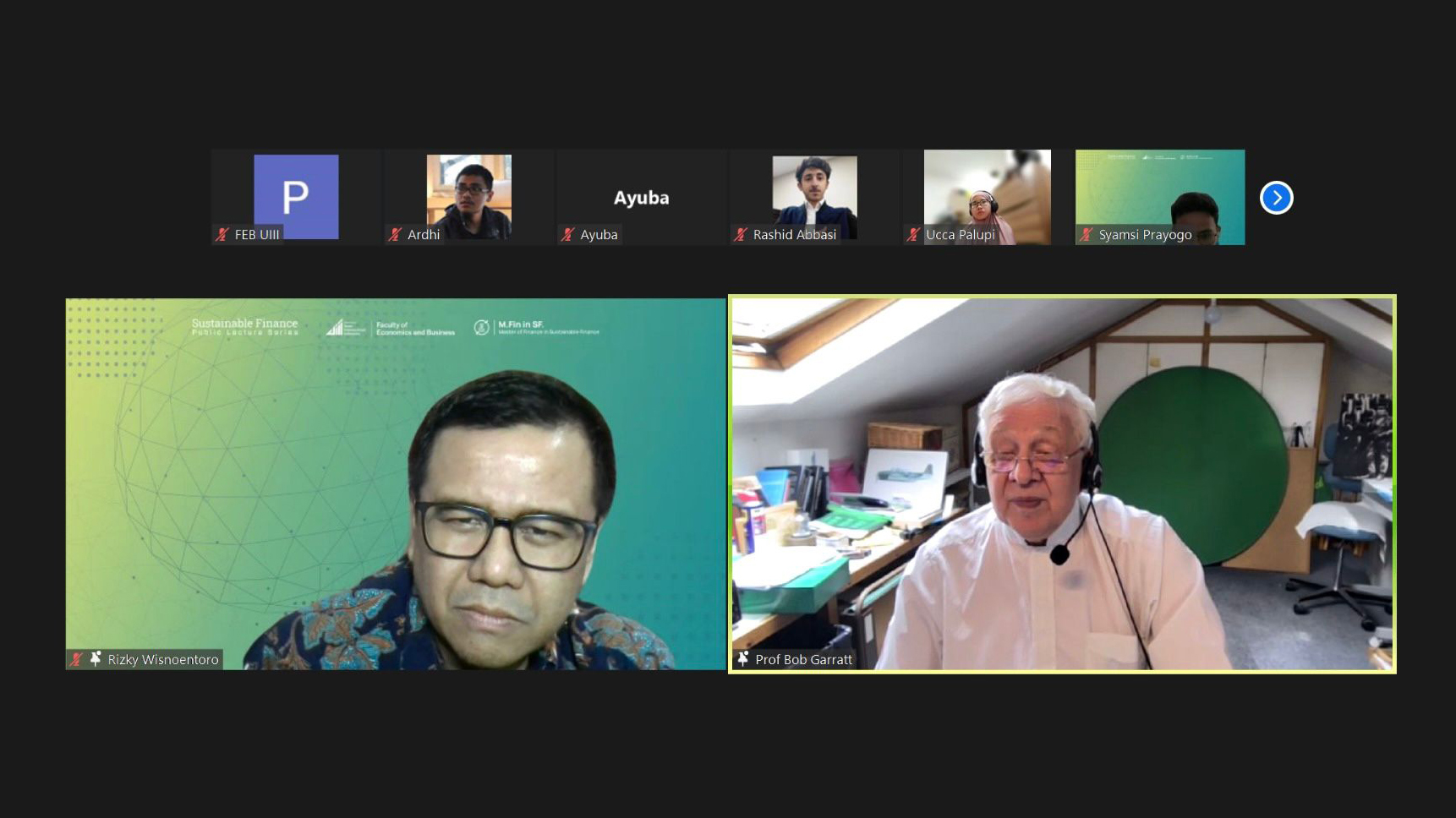From Pixels to Planet: Exploring Tech's Role in Supporting Business Sustainability
January 20, 2025Contributor: Sihabudin Nf | Editor: Supriyono | Photo: Moh. Alfi Fauzilah
Depok, January 8, 2025 – The Faculty of Economics and Business (FEB UIII) hosted the 15th episode of its SF Update series, titled “The Immersion of Technology in Business Sustainability.” Delivered by Dr. Triyono Gani, Executive Director of Indonesia Financial Services Authority (OJK), the lecture explored the transformative power of technology in fostering sustainable business practices while addressing the pressing environmental and social challenges associated with its adoption.
Dr. Gani emphasized how immersive technologies like augmented reality (AR), mixed reality (MR), and virtual reality (VR) are redefining business landscapes. He highlighted their potential to create efficiencies, drive innovation, and offer new opportunities for businesses striving for sustainability, while also cautioned its potential consequences such as substantial carbon emissions during the manufacturing and the creation of e-waste.
“Without understanding digitalization, you cannot understand sustainability—it’s a must,” said Dr. Gani during his presentation. He elaborated on how the key to successful digitalization lies in robust infrastructure, evolving market dynamics, and embracing advancements at the digital frontier. Businesses need to adopt a forward-thinking mindset and integrate technology strategically to remain competitive while staying aligned with sustainability goals.
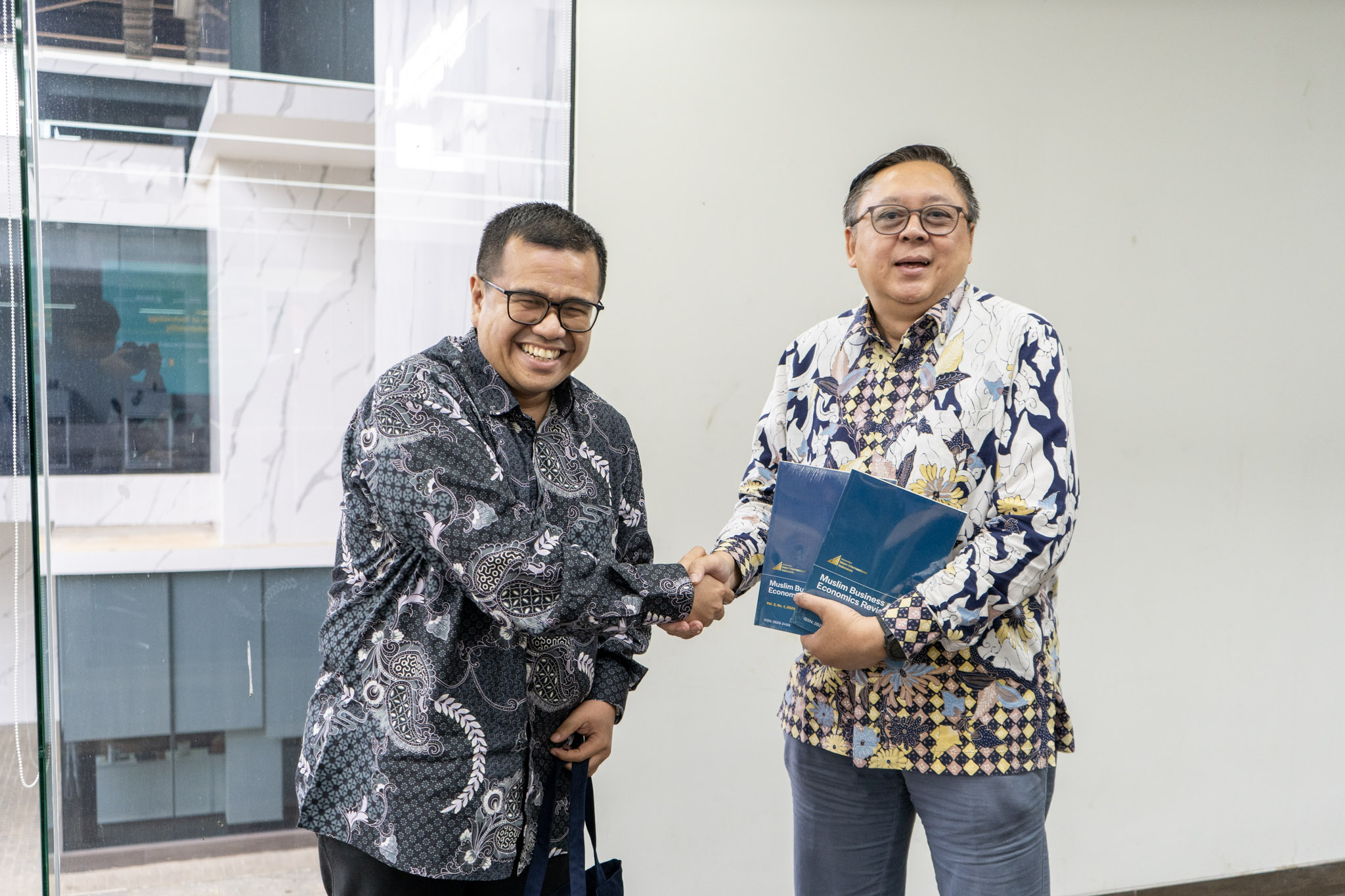
The lecture shed light on the global scale of digital transformation, with an estimated cost of $2.51 trillion USD in 2024. Dr. Gani referenced a McKinsey report that revealed 89% of companies have launched digital transformation initiatives, yet only 31% of the anticipated revenue has been realized. This gap points to significant challenges, such as resistance to change, inadequate employee training, the complexity of implementing new technologies, and the lack of clear strategies or executive support. These obstacles, Dr. Gani argued, must be addressed to maximize the benefits of technological integration.
To overcome these challenges, the lecture provided practical solutions for businesses, including leveraging online platforms for B2B and B2C operations, implementing product information systems, and adopting composable commerce frameworks. Additional strategies included integrating data-driven AI solutions, enhancing order management systems, transitioning to cloud-based services, and prioritizing system integration. Furthermore, businesses must address cybersecurity concerns, establish strong data privacy policies, and improve customer relationship management (CRM) processes to create a holistic and sustainable technological ecosystem.
The session also reflected on the role of technology in fostering a circular economy, enabling businesses to reduce waste, recycle materials, and optimize resource use. Dr. Gani’s insights demonstrated how the thoughtful adoption of technology could lead to long-term sustainability while addressing ethical and environmental considerations.
As part of UIII’s commitment to equipping students with relevant and contemporary knowledge, the SF Update session served as an eye-opening exploration of the intersection between technology and sustainability. The discussion provided students with a deeper understanding of how businesses can navigate the complexities of digital transformation while embracing sustainability as a core principle.
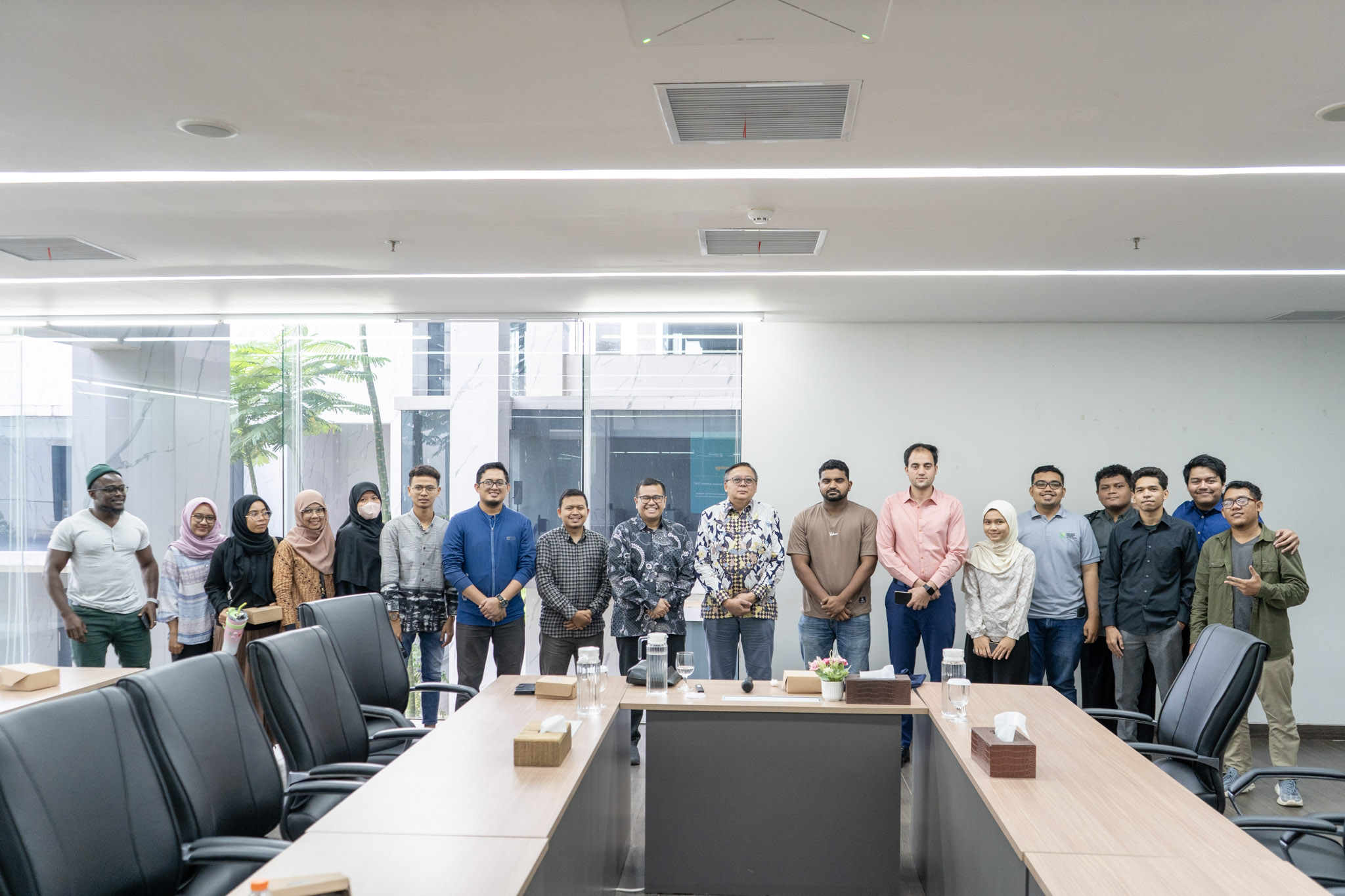
- Grit, Innovation, and Adaptation: Key Themes in FoE’s 3rd Graduate Forum for Education Future
- Student-Led Research Community Series Kick Off with Academic Publishing Session
- Advancing Institutional Governance through Risk Management Training
- A Night of Unity: International Iftar Brings Students Together in Celebration
- Vice Minister Joins Iftar with UIII International Students, Hearing Their Stories
- FisFastFest Showcases ‘TransformMe’ Spirit with Intense Quiz Competition
- Ramadan Unites Us: UIII Hosts Iftar Gathering to Strengthen Bonds
- It’s Time for Africa! UIII Aims to Expand Outreach in African Continent
- Future Innovators Gather at UIII for 1000x Challenge Mentoring & Briefing
- UIII and Al-Azhar Strengthen Ties for the Advancement of Islamic Civilization
